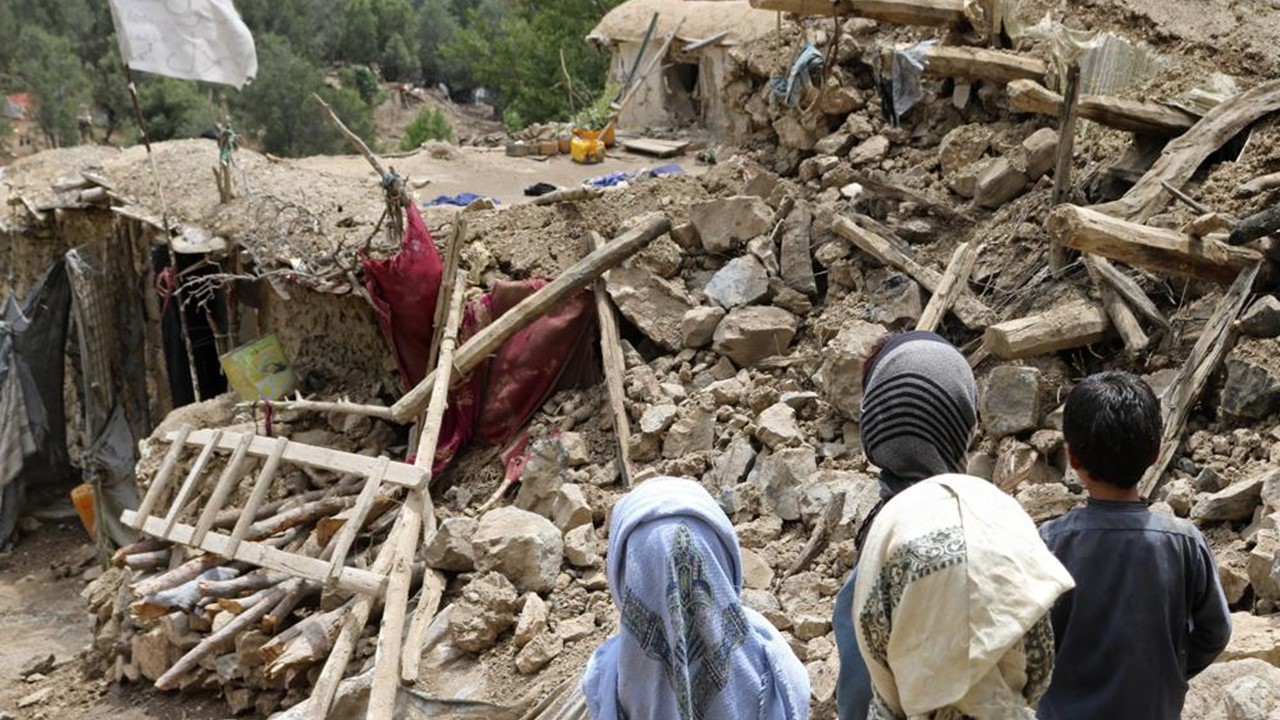Afghan authorities struggled on Thursday to reach remote areas hit by an earthquake that killed 1,000 people as heavy rain, rugged terrain, poor communications and a lack of proper roads are hampering rescuers in the country’s south-east.
The magnitude 6.1 earthquake struck early on Wednesday about 160 km, (100 miles) southeast of Kabul, in arid mountains with small settlements near the border with Pakistan.
The earthquake killed some 1,000 people and injured 1,500 injured, said Mohammad Ismail Muawiyah, a spokesman for the top Taliban military commander in hardest-hit Paktika province. More than 3,000 houses were destroyed.
About 600 people had been rescued from various affected areas on Wednesday night, he said.
The European seismological agency said the quake was felt over 500 kilometers (310 miles) by 119 million people across Afghanistan, Pakistan and India.
The United Nations is among those scrambling to provide emergency shelter and food aid to remote areas in the worst-hit Paktika province. The Taliban has not formally requested that the U.N. mobilize international search-and-rescue teams or obtain equipment from neighboring countries to supplement the few dozen ambulances and several helicopters sent in by Afghan authorities.
 Survivors and rescuers have told the BBC of villages completely destroyed near the epicentre of the quake, of ruined roads and mobile phone towers - and of their fears that the death toll will rise further.
Survivors and rescuers have told the BBC of villages completely destroyed near the epicentre of the quake, of ruined roads and mobile phone towers - and of their fears that the death toll will rise further.
Afghanistan is in the midst of a humanitarian and economic crisis, and Abdul Qahar Balkhi, a senior Taliban official, said the government was "financially unable to assist the people to the extent that is needed".
The head of the UN, António Guterres said the agency had "fully mobilised" over the disaster. Health teams, medical supplies, food and emergency shelters were en route to the quake zone, UN officials said.
More than 60% of Afghanistan’s population of 38 million already relies on international aid to survive.
Most of the casualties so far have been in the Gayan and Barmal districts of Paktika. A whole village in Gayan has reportedly been destroyed.
Afghan media published pictures of houses reduced to rubble and bodies swathed in blankets on the ground in the hours after the earthquake struck.
 Communication following the quake is difficult because of damage to mobile phone towers and the death toll could rise further still, a local journalist in the area told the BBC.
Communication following the quake is difficult because of damage to mobile phone towers and the death toll could rise further still, a local journalist in the area told the BBC.
Large parts of South Asia are seismically active because a tectonic plate known as the Indian plate is pushing north into the Eurasian plate.
Afghanistan is prone to quakes, as it is located in a tectonically active region, over a number of fault lines including the Chaman fault, the Hari Rud fault, the Central Badakhshan fault and the Darvaz fault.
Over the past decade more than 7,000 people have been killed in earthquakes in the country, the UN's Office for the Co-ordination of Humanitarian Affairs reports. There are an average of 560 deaths a year from earthquakes.
According to the UN, 93% of households in Afghanistan suffer food insecurity. Lucien Christen, from the Red Cross, said Afghanistan's "dire economic situation" meant "they're [Afghan families] not able to put food on the table".
-BBC/AP/Reuters